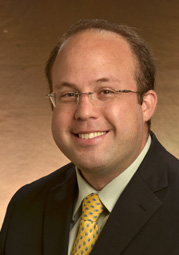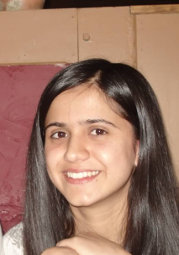THE MISSION
 The Laursen Research Group focuses on understanding the fundamental controlling factors that govern the performance of heterogeneous catalytic materials. A combination of theoretical and experimental tools are used to obtain atomic, molecular, and macroscopic information concerning catalyst composition, structure, and performance. Specific focus is drawn to understanding composition-activity, structure-activity, and shape-activity relationships that are critical to advanced catalyst design. Our fundamental research is applied in-house to solve the immediate problems that concern society. Presently, we are focused upon developing non-noble metal solid catalysts, the efficient use of petroleum feedstock, transforming biomass into fuels and chemicals, and utilizing solar energy, H2O, and CO2 as a fuel. The Laursen Research Group operates from the atomic-level to bench-top reactor scale. Our research is uniquely fundamental as well as applied.
The Laursen Research Group focuses on understanding the fundamental controlling factors that govern the performance of heterogeneous catalytic materials. A combination of theoretical and experimental tools are used to obtain atomic, molecular, and macroscopic information concerning catalyst composition, structure, and performance. Specific focus is drawn to understanding composition-activity, structure-activity, and shape-activity relationships that are critical to advanced catalyst design. Our fundamental research is applied in-house to solve the immediate problems that concern society. Presently, we are focused upon developing non-noble metal solid catalysts, the efficient use of petroleum feedstock, transforming biomass into fuels and chemicals, and utilizing solar energy, H2O, and CO2 as a fuel. The Laursen Research Group operates from the atomic-level to bench-top reactor scale. Our research is uniquely fundamental as well as applied.

Summer Research in Knoxville, TN
THE PEOPLE
Faculty

Dr. Siris Laursen
Dr. Siris Laursen obtained his bachelor’s degree in Chemical Engineering from the University of Colorado, Boulder and his Ph.D. in Chemical Engineering from the University of Michigan, Ann Arbor. Dr. Laursen served as a postdoctoral research fellow at Instituto de Technología Química in Valencia, Spain. Currently, at the University of Tennessee, he focuses on the development of catalytic materials, surface science, and chemical reaction thermodynamics and kinetics of molecules and materials.
Contact Dr. Siris Laursen
Curriculum Vitae
Graduate Students

Yang He
Yang earned a bachelor's degree in Chemical Engineering from the University of Alabama. Currently, he is at the University of Tennessee pursuing a Ph.D. in Chemical Engineering, where he researches the catalytic upgrading of biomass to fuels and chemicals.
Project

Samiksha Poudyal
Originally from Kathmandu, Napel, Samiksha earned her bachelor's degree in Chemical Engineering from Brigham Young University in Provo, Utah in 2012. She is a Ph.D. candiate at the University of Tennessee in the Chemical and Biomolecular Engineering department. She began working in the lab in August 2012, and her current research focuses on photoelectrochemical processes for CO2 reduction.
Project

 The Laursen Research Group focuses on understanding the fundamental controlling factors that govern the performance of heterogeneous catalytic materials. A combination of theoretical and experimental tools are used to obtain atomic, molecular, and macroscopic information concerning catalyst composition, structure, and performance. Specific focus is drawn to understanding composition-activity, structure-activity, and shape-activity relationships that are critical to advanced catalyst design. Our fundamental research is applied in-house to solve the immediate problems that concern society. Presently, we are focused upon developing non-noble metal solid catalysts, the efficient use of petroleum feedstock, transforming biomass into fuels and chemicals, and utilizing solar energy, H2O, and CO2 as a fuel. The Laursen Research Group operates from the atomic-level to bench-top reactor scale. Our research is uniquely fundamental as well as applied.
The Laursen Research Group focuses on understanding the fundamental controlling factors that govern the performance of heterogeneous catalytic materials. A combination of theoretical and experimental tools are used to obtain atomic, molecular, and macroscopic information concerning catalyst composition, structure, and performance. Specific focus is drawn to understanding composition-activity, structure-activity, and shape-activity relationships that are critical to advanced catalyst design. Our fundamental research is applied in-house to solve the immediate problems that concern society. Presently, we are focused upon developing non-noble metal solid catalysts, the efficient use of petroleum feedstock, transforming biomass into fuels and chemicals, and utilizing solar energy, H2O, and CO2 as a fuel. The Laursen Research Group operates from the atomic-level to bench-top reactor scale. Our research is uniquely fundamental as well as applied.

